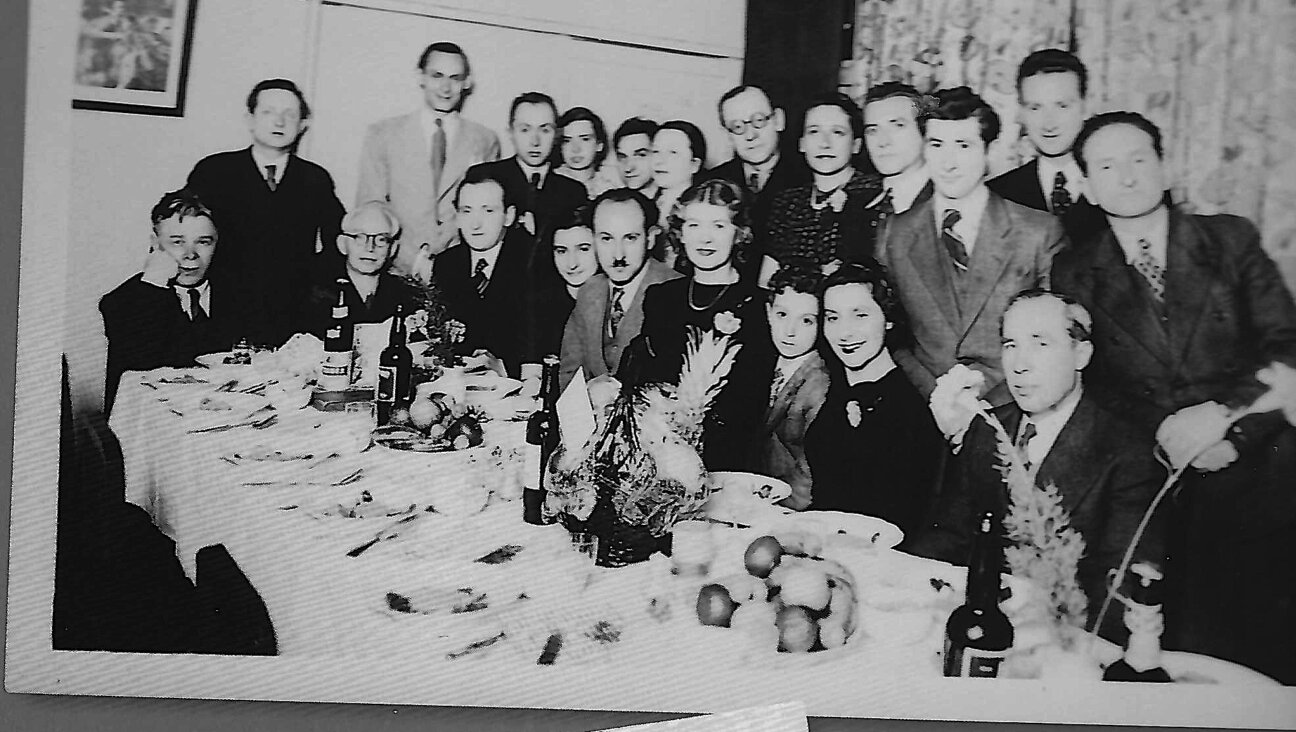Israeli Unilateralism Won’t Work If Olmert Has To Go It Alone
Prime Minister Ehud Olmert’s maiden voyage to the White House seems to have gone as well as could be expected. After aides on both sides tried to plunge expectations lower than the Dead Sea before the summit, President Bush termed Olmert’s unilateral option to evacuate the majority of West Bank settlements a “bold” concept that could dovetail into a mutually agreed-upon peace.
It was an important vote of confidence from Israel’s patron before it decides whether to fully get behind the idea. Now, however, the hard work begins: turning a concept into a full-blown plan.
In the Middle East, it takes more than one to be unilateral. There needs to be coordination all the way around, all the more so because the formal negotiations that characterized Israeli-Palestinian diplomacy in the 1990s are very unlikely in the era of Hamas.
While both Bush and Olmert have expressed a preference for negotiations, few in Washington believe they are likely to take place; Hamas is too strong and Palestinian President Mahmoud Abbas too weak for Olmert to be able to politically afford to enter into potentially meandering talks. Nonetheless, in order for Olmert to win broad support for his concept, he needs to develop a strategy that sufficiently brings in Washington as well as Ramallah.
Olmert’s concept calls for unilateral pullout from most of the settlements while letting most of the settlers stay where they are. He has not precisely defined the geographic contours of his plans, but there are some clues.
There are 72 settlements containing 60,000 people outside the separation barrier, and they would be the most likely to go. It is worth remembering that this figure is approximately eight times the number of Gaza settlers, and that these 60,000 people live in the Jewish heartland of the West Bank, with all its biblical resonance. A large majority of the settlers, however — the roughly 193,000 settlers who live inside the separation barrier in settlement blocs largely adjacent to the pre-1967 boundaries — would likely stay put.
In order to realize his plan, Olmert needs America’s political imprimatur, for without it his actions will almost certainly lack international legitimacy. Take the most obvious example: The security barrier, once completed, will leave 8% of the West Bank on the Israeli side, and comes very close to the lines favored by President Bill Clinton at the end of his presidency. Left to their own devices, Europeans and others will surely focus on the 8% of the glass that they consider empty.
Olmert also needs the United States to convene a variety of countries to consider the costs of what is a massive effort of historic proportions. Without American political and economic backing, the bottom line is that Olmert cannot succeed.
However, Olmert also needs to coordinate the move with Abbas. Coordination, it is worth noting, is not the same as negotiation: Abbas can help shape the plan, but he is more likely to have a vote than a veto. Working with Abbas could lift the non-Hamas elements among the Palestinians, as well as smooth out the rough edges of unilateralism in the eyes of much of the world.
Yet even if Olmert succeeds in bringing in Washington and Ramallah, questions will remain, chief among them whether the plan will include pulling out the military. With Hamas in power, incurring security risk is difficult in any event, and this risk is compounded by the lack of any tangible reward.
The international community is unlikely to pass a United Nations Security Council resolution saying Israel is no longer responsible for the Palestinian population. So far the U.N. has not taken any steps to recognize Israel’s full withdrawal last year from Gaza as compliance with Security Council Resolution 242, despite Israel pulling out both its military and civilian population and ceding control of Gaza’s border with Egypt.
Even when it comes to the United States, Olmert faces a tough challenge in garnering recognition for a border, so long as other outstanding issues remain with the Palestinians, such as Jerusalem and refugees. Bush’s remarks at a press conference this week suggest that, indeed, this will not occur. And the challenge will be all the more tough given that the Palestinians are unlikely to recognize Olmert’s “convergence” plan as creating the conditions for a Palestinian state with provisional borders in accordance with the Roadmap — Ramallah will be prone to view any provisional state as precluding an international spotlight on its remaining claims.
While the international community — once it is led by the United States — can be expected to applaud Olmert’s decision to withdraw settlers, it is unlikely to bestow international recognition in return. Olmert will find this reaction inadequate, which could have profound implications for his domestic political standing.
The question is whether alternatives short of international recognition exist that could satisfy Olmert. Short of full recognition, Olmert politically needs some form of explicit acknowledgement that Israel’s control of carefully defined and agreed-upon settlement blocs is essentially permanent.
In the past few years, the United States and Israel reached tacit understandings on the contours of Israel’s security barrier, including its route near the main settlement blocs. This cooperation is likely to continue in 2006 and beyond with regard to practical understandings on the scope of the Maale Adumim and Ariel blocs that are not yet fenced in or linked up to the wider security barrier. When Washington and Jerusalem have agreed on the scope of the barrier, the possibility exists that the White House could press Europe to acknowledge the de facto permanency of the fenced-in settlement blocs. The United States could recognize Israel’s move to incorporate settlement blocs beyond the pre-1967 lines in the context of a promise by Israel to ultimately accept the principle of territorial compensation or exchange for the Palestinians from pre-1967 Israel, but only when a final status deal is in the offing.
That land card could only be cashed in during final status talks down the road. From Israel’s perspective, Washington’s endorsement of such “credit card unilateralism” — buy now, pay later — would have the benefit of regularizing the status of the nearly 193,000 West Bank settlers currently living in the settlement blocs, a development that is politically critical for Olmert’s domestic standing. At the same time, it could simultaneously serve Palestinian interests by signaling the ultimate contours of the future Palestinian state.
Olmert’s plan is a massive historic undertaking. It will require extraordinary financial resources, as well as an understanding that Jerusalem will probably need the attention and leadership of the Bush administration until the end of its term. These are issues that will not resolve themselves, and Washington must practice active, hands-on diplomacy in order to ensure the plan’s success.

I hope you appreciated this article. Before you go, I’d like to ask you to please support the Forward’s award-winning journalism this Passover.
In this age of misinformation, our work is needed like never before. We report on the news that matters most to American Jews, driven by truth, not ideology.
At a time when newsrooms are closing or cutting back, the Forward has removed its paywall. That means for the first time in our 126-year history, Forward journalism is free to everyone, everywhere. With an ongoing war, rising antisemitism, and a flood of disinformation that may affect the upcoming election, we believe that free and open access to Jewish journalism is imperative.
Readers like you make it all possible. Right now, we’re in the middle of our Passover Pledge Drive and we need 500 people to step up and make a gift to sustain our trustworthy, independent journalism.
Make a gift of any size and become a Forward member today. You’ll support our mission to tell the American Jewish story fully and fairly.
— Rachel Fishman Feddersen, Publisher and CEO
Join our mission to tell the Jewish story fully and fairly.
Our Goal: 500 gifts during our Passover Pledge Drive!























